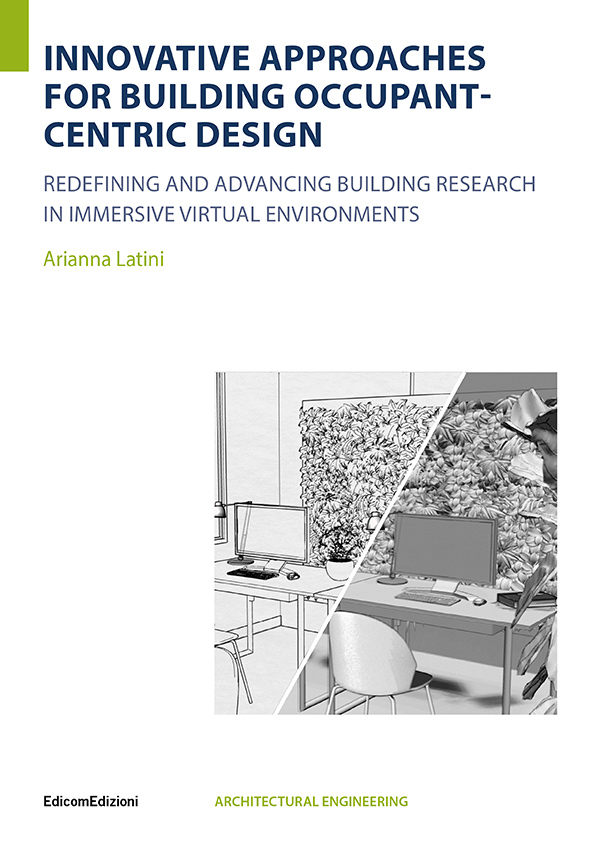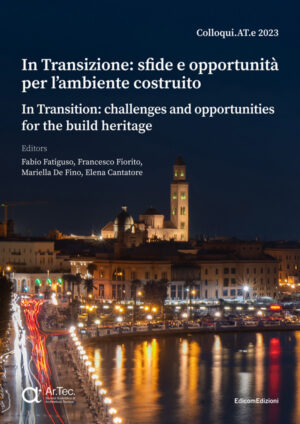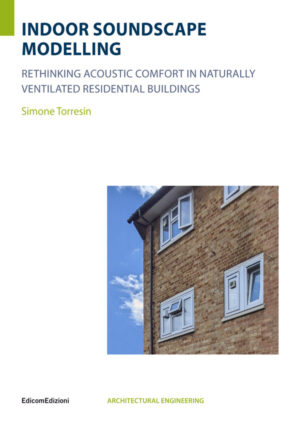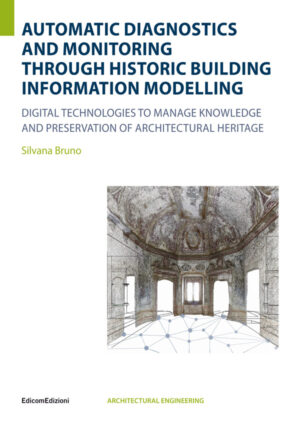Innovative Approach for Building Occupant-Centric Design
15,60€
Redefining and Advancing Building Research in Immersive Virtual Environments
Arianna Latini
eBook in formato PDF
The built environment shapes occupants’ well-being, comfort, behaviour, perceptions and productivity due to the huge amount of time spent indoors. Even if the human dimension is at the forefront of concern in building design and regulation, the comprehension of human responses to indoor environmental factors is oversimplified in academia. Indeed, the complexities of multi-sensorial analysis and the limitations of traditional laboratory settings cause challenges in building occupants’ research. Virtual Reality and Immersive Virtual Environments are suggested as alternative methods to explore this research domain.
Despite the proven potential of these solutions, the lack of standardized protocols and methods to collect reliable data limits their diffusion. As a result, this work proposed a novel experimental framework to support researchers in how to strategically and effectively adopt VR technology to conduct human-dimension studies and demonstrate the effectiveness of such advanced methodologies and experimental approaches to carry out multi-sensorial research. Immersive models and empirical studies allowed the validation of the framework, highlighting the potential of using Virtual Reality and Immersive Virtual Environments as trustworthy “data collectors”.
The finding demonstrated the practical opportunity to expand the use of Virtual Reality to support evidence-based design practices and the research in the built environment and theories on human comfort, work efficiency and behaviour avoiding the time and cost-consuming physical settings.
CONTENTS
Abstract
1. Part I: Introduction
2. Part II: Human dimension research in buildings: Immersive Virtual Reality applications in the fields of work efficiency, comfort and adaptive behaviour
3. Part III: Definition of an experimental framework for IVR applications
4. Part IV: Validation of the experimental framework
5. Part V: Applications of the experimental framework in the fields of work-efficiency, comfort and adaptive behaviour
6. Part VI: Conclusions, limitations and future perspectives
7. Acknowledgments
References
Arianna Latini
Postdoctoral Researcher at the Department of Construction, Civil Engineering and Architecture of Università Politecnica delle Marche, where she also earned her Master’s Degree in Building Engineering and Architecture and PhD. Her research explores the complex, multidisciplinary and multi-sensory relationships between building occupants and their built environments, seeking to enhance comfort, work efficiency, behaviour, perception and physiology through innovative approaches. She specialised in building occupants’ studies, adopting holistic approaches that integrate cutting-edge methodologies, including Virtual Reality tools (head-mounted displays, CAVE) and monitoring campaigns, to explore the dynamics between building design and human-dimension.
Her works were published in several national and international journals of high scientific qualification.
Informazioni aggiuntive
| formato | 21 x 29,7 cm |
|---|---|
| pagine | 162 |
| ISBN | 979-12-81229-11-2 |
| lingua | inglese |
| collana |




